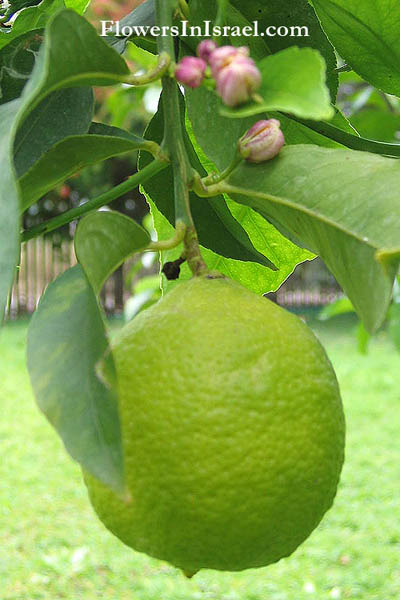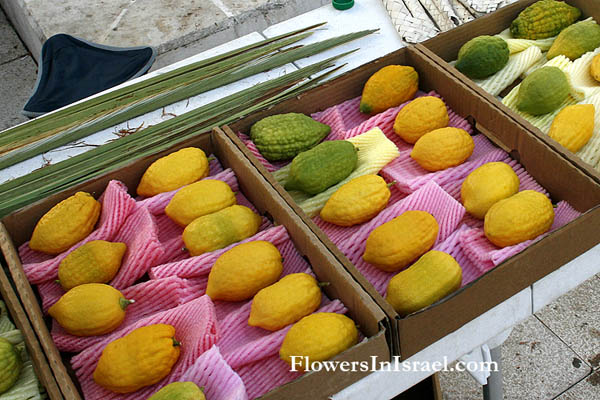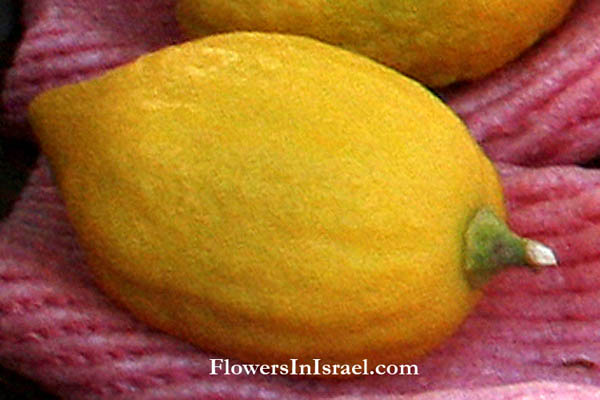Etrog, عورزم نوميل, אֶתְרוֹג
| Scientific name: | Citrus medica L. | |
| Common name: | Citron | |
| Hebrew name: | אתרוג, etrog | |
| Arabic name: | عورزم نوميل, Leimoon-Mazroo'a | |
| Plant Family: | Rutaceae, פיגמיים |

|
| Life form: | Tree | |
| Stems: | Up to 3 m | |
| Leaves: | Alternate, elliptic-ovate to ovate-lanceolate, obtuse to rounded, serrate-crenate margins | |
| Flowers: | White inside, purplish outside | |
| Fruits / pods: | Hesperidium (a fruit with sectioned pulp inside a separable rind); 8-10 cm; ovoid to oblong, peel:yellow to green, rough tuberculate, thick; greenish pulp; acid, bitter juice | |
| Flowering Period: | January, September, October | |
| Habitat: | Light soils | |
| Distribution: | Cultivated | |
| Chorotype: | Origin is unknown | |
| Summer shedding: | Perennating |

Derivation of the botanical name: Citrus, Latin name for some fruit, which includes oranges, lemons, limes, and grapefruit. medica, healing, curative; medicinal. The Hebrew name: אתרוג, etrog, from Old Persian ترنج (toronj), Arabic تُرُنْج (turunj), أُتْرُجّ (ʾutrujj), from Aramaic תְּרוֹגָא (tərōḡā), אֶתְרוֹגָא (ʾeṯrōḡā).
It was a common fruit in the Mediterranean region at the time of the Bible and it is mentioned only once, as one of the four species used in a waving ritual during the Jewish holiday of Sukkot, the Feast of Tabernacles. Leviticus 23:40 refers to the etrog as pri etz hadar (פְּרִי עֵץ הָדָר), which literally means, "a fruit of the beautiful tree." The other species are the lulav (date palm frond), hadass (myrtle bough), and aravah (willow branch). Goodly Trees - In the Talmud (Ṣukkāh 35a) this is explained to be the Citrus medica. Bible Resources: And ye shall take you on the first day the boughs of goodly trees, branches of palm trees, and the boughs of thick trees, and willows of the brook; and ye shall rejoice before the LORD your God seven days. 
|